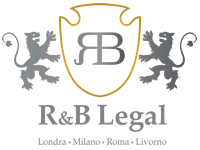HMRC reveals details of R&D credits anti-fraud campaign
Earlier in 2022, HMRC announced that it was suspending payments of R&D tax credits while it investigated some claims. It has now released details of a new campaign to fight fraudulent claims. What are they?

R&D tax reliefs are a generous collection of corporation tax breaks that incentivise innovation. At the most basic level, R&D offers an enhanced deduction for qualifying expenditure, reducing. However, the relief for small and medium enterprises can be even better. Where the claimant company is loss making, part of the loss (the surrenderable loss) can be exchanged for a payable credit, equal to 14.5% of the loss surrendered. Unfortunately, the generous nature of this credit has attracted fraudsters. These “advisors” submit claims on behalf of companies, taking a share of the payable credit on a “no win, no fee” basis. As with many claims that are self-submitted, HMRC often makes a payment before asking questions, clawing back the amount (with penalties) if it is found to lack merit. Unfortunately, many fraudsters ask the company to permit HMRC to pay the money directly to them, meaning that when the demand for repayment comes through, the company is out of pocket.
As with all these types of fraud, anyone should exercise caution if approached by a third-party making claims that sound too good to be true. It may well be that there are genuine R&D costs being incurred, but it’s unlikely that the company directors would be totally unaware of these - even if they know little to nothing about R&D tax credits. HMRC is writing to companies where the claim appears to be spurious, inviting them to contact the department with further information, and reserving the right to open a criminal investigation.
Related Topics
-
Scammers already targeting pensioners over winter fuel payments
Phishing attacks are already being sent to pensioners purporting to be from the Department for Work and Pensions (DWP). What’s going on and how can you avoid becoming a victim?
-
Changes to NDAs from 1 October 2025
From 1 October 2025 non-disclosure agreements (NDAs) will become unenforceable if they prevent victims of crime from making certain disclosures. What does the new law say?
-
When will you have to register your new business for MTD?
The timetable for mandatory use of Making Tax Digital for Income Tax Self-Assessment (MTD ITSA) by existing businesses is well established. But when must you use MTD ITSA if you start a new business or create a new income stream?






 This website uses both its own and third-party cookies to analyze our services and navigation on our website in order to improve its contents (analytical purposes: measure visits and sources of web traffic). The legal basis is the consent of the user, except in the case of basic cookies, which are essential to navigate this website.
This website uses both its own and third-party cookies to analyze our services and navigation on our website in order to improve its contents (analytical purposes: measure visits and sources of web traffic). The legal basis is the consent of the user, except in the case of basic cookies, which are essential to navigate this website.